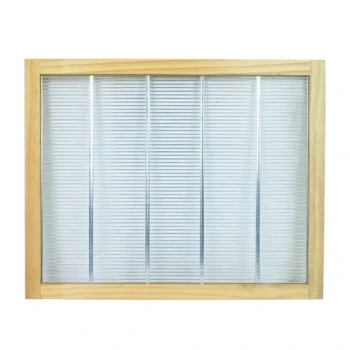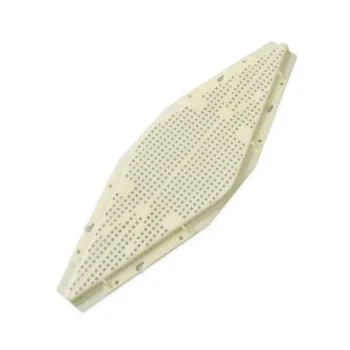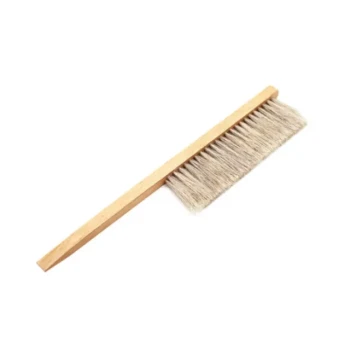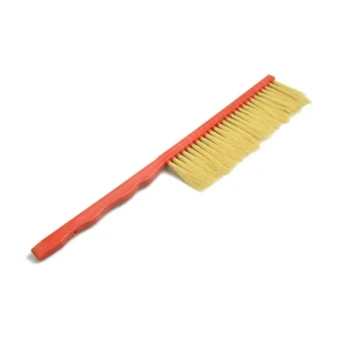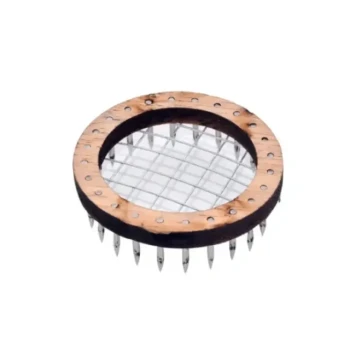For a commercial apiary, a queen excluder is an indispensable tool for operational efficiency. Its primary function is to confine the queen to the brood boxes, which prevents her from laying eggs in the honey supers. This simple separation is the key to managing hundreds of hives at scale, transforming the complex task of harvesting into a predictable and streamlined process.
The core value of a queen excluder in a commercial setting is not merely separating brood from honey; it's about fundamentally changing the workflow to reduce labor costs, improve product quality, and make large-scale hive management profitable.
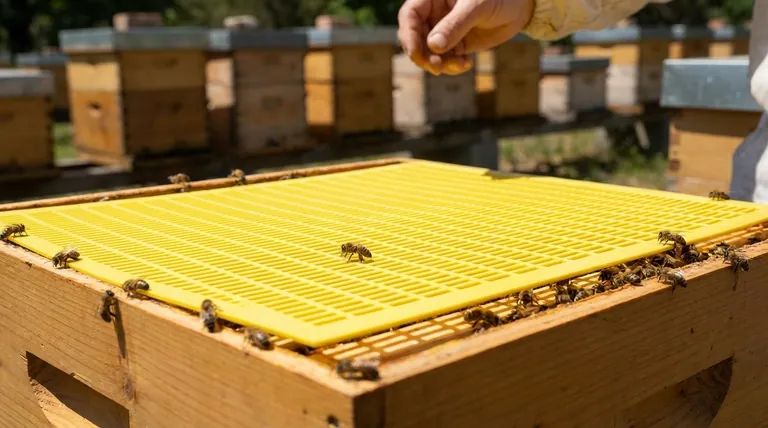
The Foundation of Commercial Efficiency
At a commercial scale, time is the most critical resource. Any tool or technique that saves minutes per hive translates into significant labor cost savings and increased operational capacity. The queen excluder is central to this principle.
Streamlining the Harvest
Without an excluder, every single frame in a honey super must be inspected for brood before it can be harvested. This is a meticulous and slow process.
With an excluder in place, the beekeeper can be confident that the supers contain only honey. This allows for the removal of entire boxes without individual frame inspection, dramatically accelerating the harvest.
Reducing Labor Costs
The time saved by not inspecting frames translates directly into lower labor costs per hive. A team can process significantly more hives in a day.
This efficiency gain is the primary reason the excluder is a standard piece of equipment in commercial operations, where the return on investment is immediate and substantial.
Simplifying Bee Removal
When it's time to harvest, bees must be cleared from the honey supers. Because the queen and brood are in the boxes below, the worker bees in the supers are less defensive and less numerous.
This makes clearing the bees with a fume board or bee escape a much faster and more effective process, further contributing to a swift harvest.
Enhancing Hive Management and Product Quality
Beyond the harvest, the queen excluder simplifies other critical management tasks and directly contributes to a more valuable final product.
Locating the Queen with Certainty
When a queen needs to be replaced or the colony's health needs to be assessed, finding the queen can be like finding a needle in a haystack.
An excluder confines the queen to the brood boxes, typically one or two. This drastically reduces the search area, saving immense time and reducing disruption to the colony during inspections.
Producing Cleaner, Premium Honey
Honey frames that have also been used for raising brood inevitably contain more impurities, such as pollen and remnants of cocoons.
By keeping brood out of the supers, the resulting honey is cleaner and has a lower pollen count. This can be a key differentiator for selling a premium product.
Improving Wax Quality
The wax combs from honey supers that have never contained brood are pristine. This "white wax" is of a much higher quality and commands a better price than the darker, older wax from the brood chamber.
Understanding the Trade-offs
While indispensable for commercial use, it's important to understand the potential downsides, which are generally considered manageable trade-offs at scale.
The "Honey Bound" Risk
If the excluder is placed over a brood box that is already full of honey and pollen, the queen may run out of space to lay eggs. This is known as becoming "honey bound."
Commercial operators mitigate this by ensuring the brood chamber is managed properly and has adequate space before adding the excluder and supers.
The Debate on Honey Yield
Some beekeepers argue that forcing bees through the narrow slots of an excluder can slow their movement and slightly reduce the overall honey yield.
However, for a commercial beekeeper, the massive gains in operational efficiency and labor savings almost always outweigh any minor, potential reduction in yield per hive.
Upfront Equipment Cost
For an apiary with hundreds or thousands of hives, the initial investment in queen excluders is significant.
This cost is viewed as a necessary capital expenditure. The return is calculated in reduced labor hours and increased processing capacity season after season.
Making the Right Choice for Your Goal
The decision to use a queen excluder depends entirely on your operational goals.
- If your primary focus is maximizing harvest speed: Use queen excluders to enable the rapid removal of entire supers without frame-by-frame inspection.
- If your primary focus is producing premium honey: Rely on excluders to ensure your honey supers remain free of brood and excess pollen, resulting in a cleaner final product.
- If your primary focus is simplifying queen management: Employ excluders to keep the queen in a known area, drastically cutting down the time required for inspections and re-queening.
Ultimately, the queen excluder allows a beekeeper to systematize their operation, which is the foundational principle of any successful commercial apiary.
Summary Table:
| Key Benefit | Impact on Commercial Apiary |
|---|---|
| Streamlines Harvest | Enables removal of entire honey supers without frame-by-frame inspection, saving significant time. |
| Reduces Labor Costs | Drastically cuts down the man-hours required per hive during harvest and inspections. |
| Improves Product Quality | Ensures honey is cleaner with lower pollen count, supporting a premium product. |
| Simplifies Hive Management | Confines the queen to brood boxes, making her easier to locate for health checks or replacement. |
| Enhances Wax Quality | Produces higher-value "white wax" from supers that have never contained brood. |
Ready to scale your apiary's efficiency and profitability?
As a trusted supplier to commercial apiaries and distributors, HONESTBEE provides the durable, high-performance queen excluders and equipment essential for large-scale operations. Our wholesale-focused solutions are designed to deliver the reliability and ROI your business depends on.
Contact our expert team today to discuss your needs and discover how our beekeeping supplies can transform your workflow.
Visual Guide
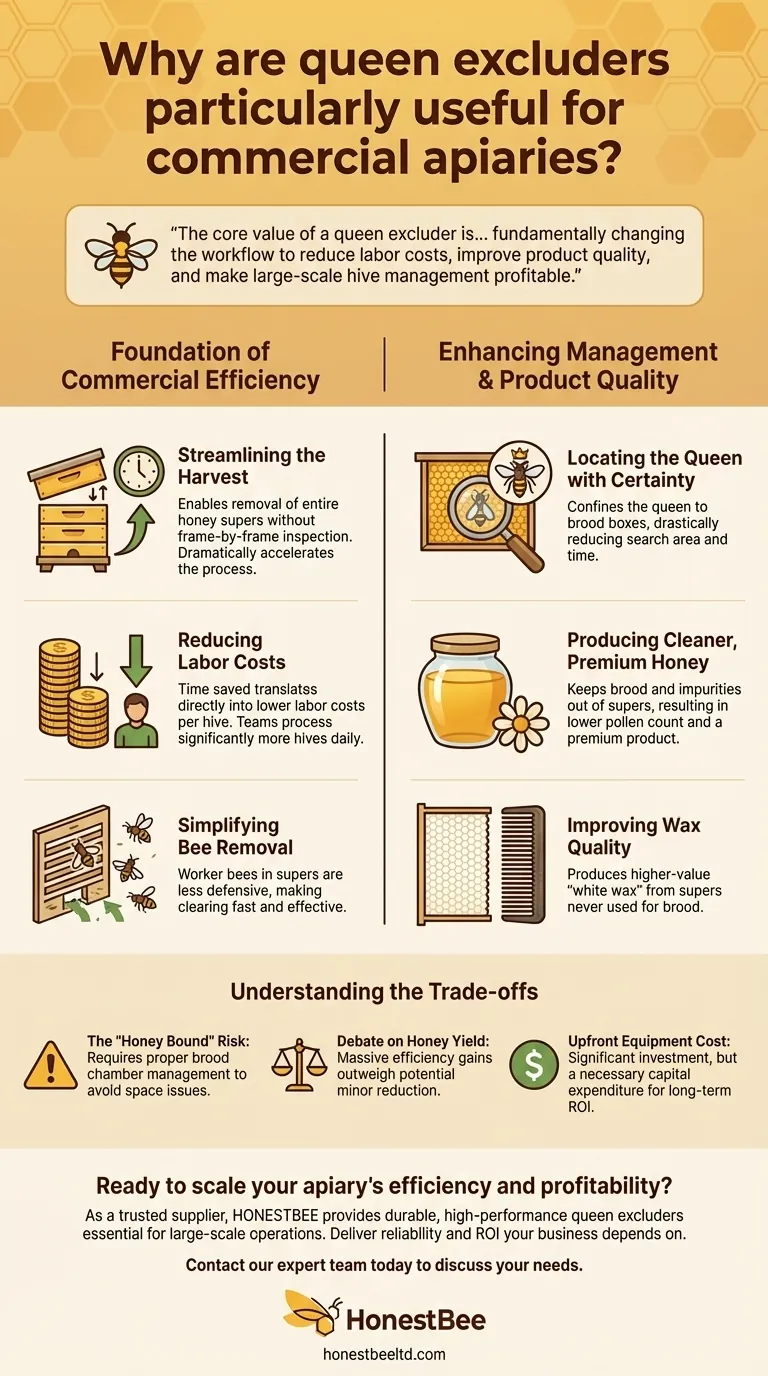
Related Products
- Professional Plastic Queen Excluder for Modern Beekeeping
- High Performance Plastic Queen Excluder for Beekeeping and Apiary Management
- Premium Wood Framed Metal Wire Queen Bee Excluder
- Wooden Queen Bee Excluder for Beekeeping
- HONESTBEE 6 Frame Three Use Electric Honey Extractor for Beekeeping
People Also Ask
- What materials are commonly used to make queen excluders? Metal vs. Plastic Guide
- What are the disadvantages of using metal queen excluders? Key Insights for Apiary Management
- What are the typical designs and materials of a queen excluder? Choose the Best Gear for Your Apiary Efficiency
- What is the significance of using queen excluders in research? Enhance Data Integrity and Hive Control
- What function does a queen excluder serve? Boost Honey Purity and Breeding Accuracy


